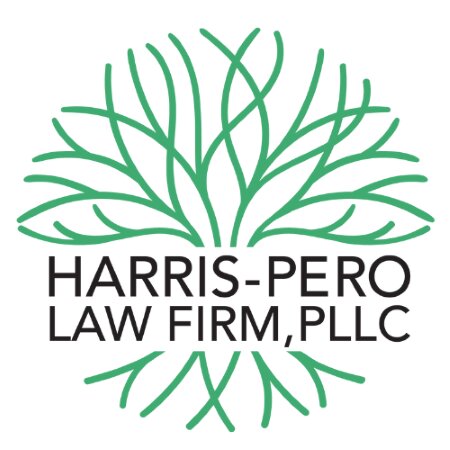Best Health Care Lawyers in New York
Share your needs with us, get contacted by law firms.
Free. Takes 2 min.
Or refine your search by selecting a city:
List of the best lawyers in New York, United States
About Health Care Law in New York, United States
Health care law in New York covers the legal rules and regulations related to medical care, hospitals, insurance, providers, and patient rights within the state. It governs how health care is delivered, how providers operate, and the protections patients have when seeking care. New York has a robust health care landscape, including numerous private hospitals, a public hospital system, and a variety of public health initiatives. State law works alongside federal laws like the Affordable Care Act and HIPAA to protect consumers and ensure high standards of medical care.
Why You May Need a Lawyer
There are many situations where consulting a health care lawyer can be beneficial in New York. Common reasons include:
- Appealing a denial of health insurance coverage or benefits
- Handling medical billing disputes and unexpected medical charges
- Resolving issues related to Medicaid or Medicare eligibility or benefits
- Navigating disputes with hospitals or other providers regarding quality of care
- Understanding patient consent, confidentiality, and privacy matters
- Addressing cases of medical malpractice or provider negligence
- Dealing with long-term care institutions and nursing home legal concerns
- Advising health care businesses and professionals on licensing and compliance with regulations
- Representing whistleblowers reporting health care fraud or abuse
Local Laws Overview
New York State has specific laws and regulations that impact health care delivery, insurance, and patient protection:
- New York State Department of Health: This agency oversees hospitals, clinics, nursing homes, and public health programs. It is deeply involved in licensing, regulation, and enforcement of health care standards.
- New York Patient Bill of Rights: State law provides every patient with rights concerning informed consent, medical records access, and safe, respectful care in medical settings.
- Insurance Laws: New York mandates health plans to cover certain benefits, mental health and substance use disorder treatments, and sets limits on out-of-pocket costs.
- Surprise Billing Laws: The state has special rules protecting patients from unexpected bills when receiving out-of-network emergency care or when out-of-network providers are involved without the patient's knowledge.
- Medicaid and Child Health Plus: New York offers expanded Medicaid eligibility and state-sponsored health insurance for children, with specific application and appeal rights.
- Consent and Confidentiality: State law details when and how a patient’s medical information can be shared and when consent is needed for medical treatment, especially for minors and mental health care.
Frequently Asked Questions
What should I do if my health insurance claim is denied in New York?
You have the right to request a written explanation, appeal the decision with your insurer, and file an external appeal through the New York State Department of Financial Services if necessary.
How do I file a complaint against a doctor or hospital?
You can file complaints with the New York State Department of Health or the Office of Professional Medical Conduct, depending on the issue, for investigation and possible enforcement action.
What protections do I have against surprise medical bills?
New York law protects patients from most surprise bills, especially in emergencies or when out-of-network providers are involved without your knowledge or consent.
Can I access my own medical records?
Yes, both federal and state law give you the right to access and obtain copies of your medical records, except for certain sensitive information which may be restricted by law.
What are common examples of medical malpractice?
Medical malpractice may include surgical errors, incorrect diagnoses, delayed treatment, medication mistakes, birth injuries, or failing to obtain informed consent.
Is mental health care covered by insurance in New York?
State laws require most insurance plans to cover mental health and substance use treatment on par with physical health care.
What is Medicaid and how do I apply?
Medicaid is a joint state and federal program for low-income individuals and families. You can apply online, by mail, or in person at county offices or through the NY State of Health Marketplace.
How do I report health care fraud or abuse?
You can file reports with the New York State Medicaid Fraud Control Unit or the Office of the Medicaid Inspector General. Whistleblower protections may apply.
Do minors have any rights regarding their own health care?
Minors may consent to certain care such as reproductive health, mental health, or substance use disorder treatment without parental involvement. The scope varies depending on the service.
What should I know about privacy of my health information?
Both HIPAA and New York law protect the privacy and security of your health information, limiting how it can be shared without your consent.
Additional Resources
If you need more information or assistance, the following organizations may help:
- New York State Department of Health
- New York Department of Financial Services (for insurance help and appeals)
- NY State of Health (the state’s health insurance marketplace)
- Office of Professional Medical Conduct (for complaints about providers)
- New York State Office for the Aging (for elder health care issues)
- Legal Aid Society of New York (provides free legal assistance to eligible residents)
- Medicaid Helpline (for Medicaid-related questions and support)
Next Steps
If you believe you need legal assistance with a health care matter, start by gathering all relevant documentation such as insurance policies, medical records, communications with providers or insurers, and any written denials or bills. Consider reaching out to a legal aid organization, private attorney, or a bar association referral service specializing in health care law. Early consultation with an attorney can help protect your rights, clarify your options, and prevent complications. Always ask about fees, timelines, and what to expect during the legal process. Remember, acting promptly can be important for preserving your rights and finding the best solution to your health care legal concerns in New York.
Lawzana helps you find the best lawyers and law firms in New York through a curated and pre-screened list of qualified legal professionals. Our platform offers rankings and detailed profiles of attorneys and law firms, allowing you to compare based on practice areas, including Health Care, experience, and client feedback.
Each profile includes a description of the firm's areas of practice, client reviews, team members and partners, year of establishment, spoken languages, office locations, contact information, social media presence, and any published articles or resources. Most firms on our platform speak English and are experienced in both local and international legal matters.
Get a quote from top-rated law firms in New York, United States — quickly, securely, and without unnecessary hassle.
Disclaimer:
The information provided on this page is for general informational purposes only and does not constitute legal advice. While we strive to ensure the accuracy and relevance of the content, legal information may change over time, and interpretations of the law can vary. You should always consult with a qualified legal professional for advice specific to your situation.
We disclaim all liability for actions taken or not taken based on the content of this page. If you believe any information is incorrect or outdated, please contact us, and we will review and update it where appropriate.
Browse health care law firms by city in New York
Refine your search by selecting a city.















